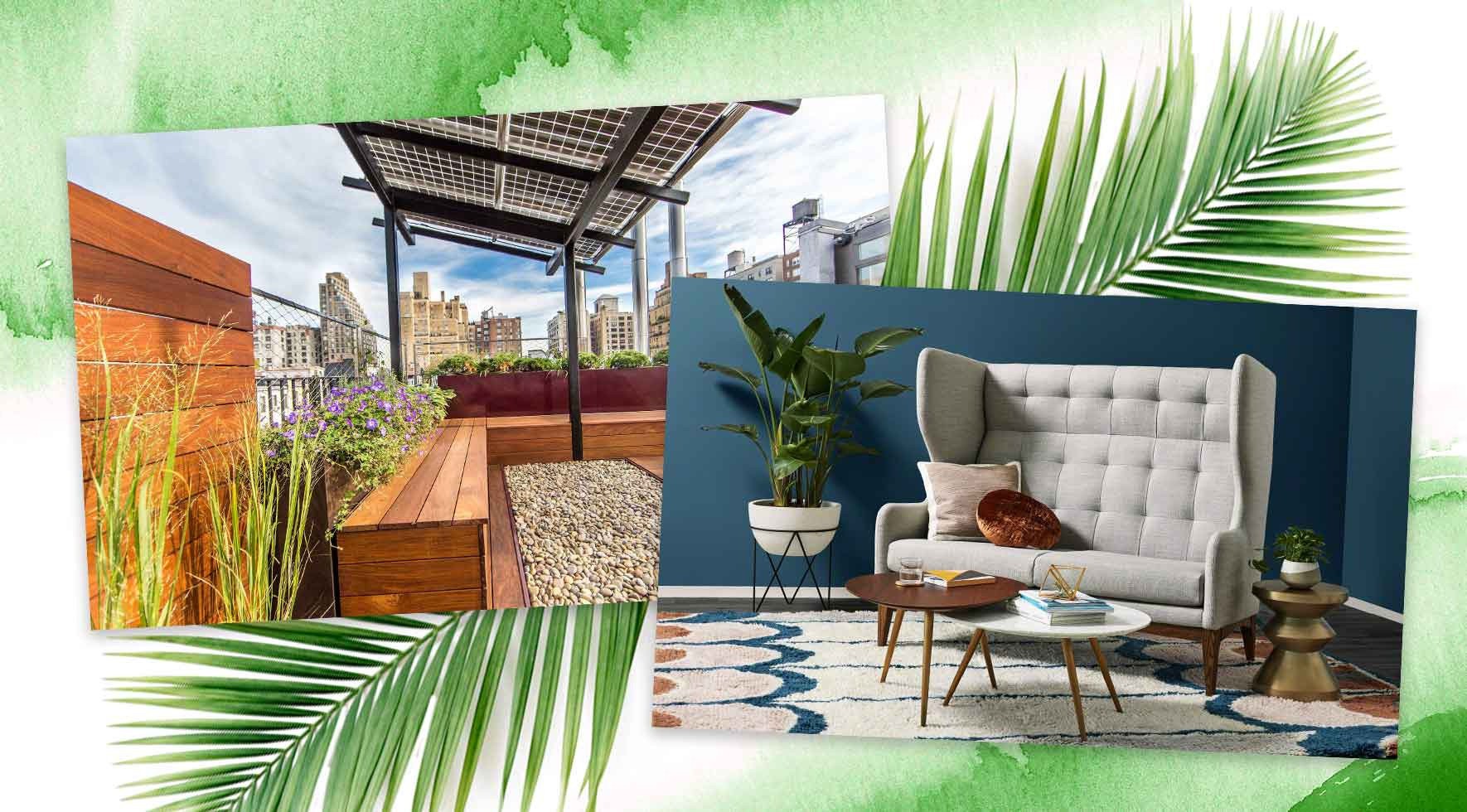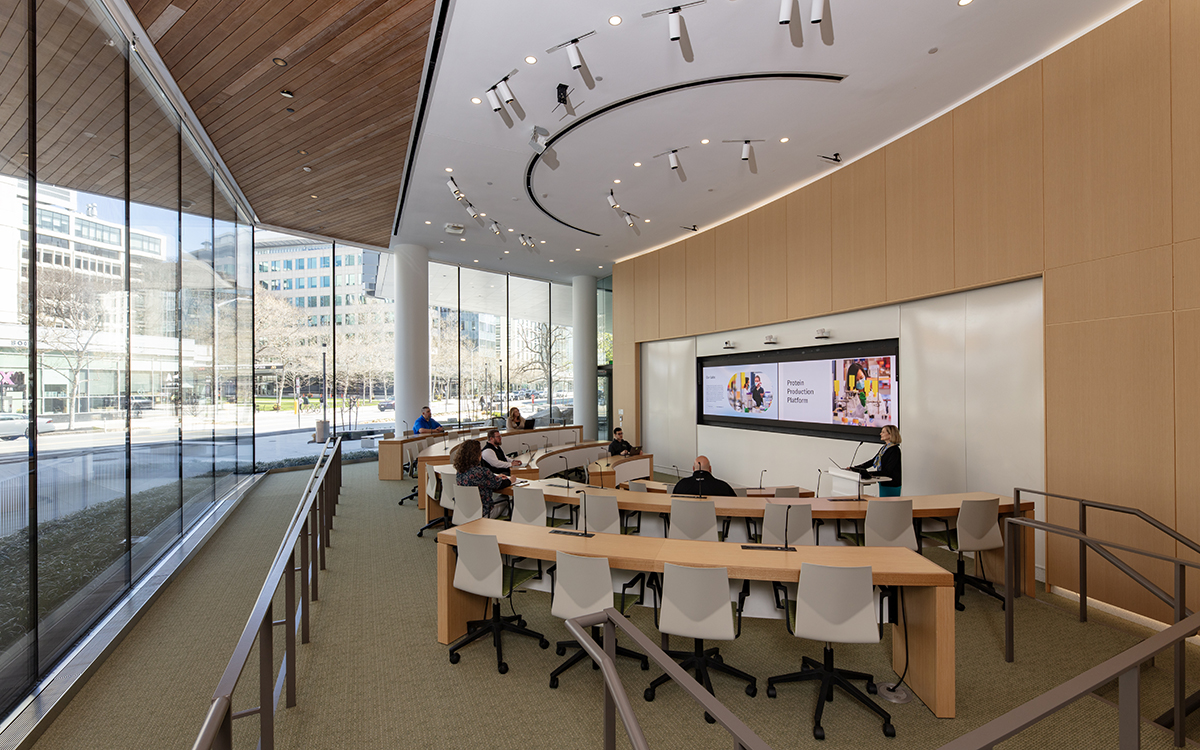Biophilia is defined as our innate fondness for and need to experience nature. Biophilic design connects people with the natural environment either directly, with plants, animals and natural elements (air, light, fire, water), indirectly with images of nature or natural-looking textures and patterns, or with space (transitional spaces that connect indoors and outdoors, architectural details, expansive spaces and nurturing alcoves). These elements of biophilic design have been found to be building blocks of emotional, cognitive and physical wellbeing, including productivity, happiness, stress reduction, learning and healing.
We spend 90% of our lives indoors, and most of that time is in front of a screen. Our biology draws us to nature, where we find respite and rejuvenation as we hike, ski, swim, camp and travel to explore natural wonders. By incorporating biophilic design into our environments we can realize physical and psychological benefits, including a boost to wellbeing and productivity.
Biophilic design can be incorporated in large and small ways – from an expansive living wall to an adorable desktop terrarium. Check out our five favorite sources for biophilic design solutions. Hopefully they provide inspiration as you search for natural elements for your workplace!
 1. Leadhead Glass
1. Leadhead Glass
Leadhead Glass fashions terrariums from the windows of houses long abandoned. Piece by piece they carve the forgotten glass into the building blocks of their exquisite architectural structures. The terrariums themselves are a contemporary take on 19th Century Wardian Cases designed to keep exotic plants alive during transport on ship. Leadhead’s versions, made in and of Detroit, keep something else alive entirely.
 2. PlanterWorx
2. PlanterWorx
As an industry leader of landscape products, Planterworx prides itself in their attention to detail and commitment to creating beautiful lasting objects. They aim to create products that are both visually desirable and technically durable. They consider many of their product examples as a starting point of inspiration, and welcome custom designs. All Planterworx products are made from the finest materials and are proudly designed and meticulously manufactured in Brooklyn, New York. ]
 3. Urban Tree
3. Urban Tree
Urban Tree specializes in utilizing Pittsburgh’s Urban Forest to craft visually stunning pieces of furniture. Urban lumber is notoriously difficult to use due to inconsistent growth, unknown health, and inclusion of foreign objects, so typically it’s chipped, burned, or thrown in a landfill. Since 2010, though, Pittsburgh’s Urban Tree has provided a new future for felled trees. They specialize in preserving the unique character of urban trees as they chainsaw mill trunks into usable slabs of lumber. Jason Boone, a trained architect, Nate Lucas, a fine artist, and their team use this singular material to create visually arresting furniture that will forever be rooted in the city of its origin.
 4. West Elm
4. West Elm
Born in Brooklyn in 2002, West Elm is a global design company dedicated to transforming people’s lives and spaces through creativity, style and purpose. Since 2015, West Elm has committed to bringing its residential sensibility to the modern office space and creating contract-grade furnishings for this market. They offer an extensive collection of planters and terrariums that are perfect for bringing nature into the built environment.
We hope this collection of vendors helps inspire you to integrate nature within your workplace!
Looking for information on ancillary furniture for residential inspired work spaces? Contact us today!









